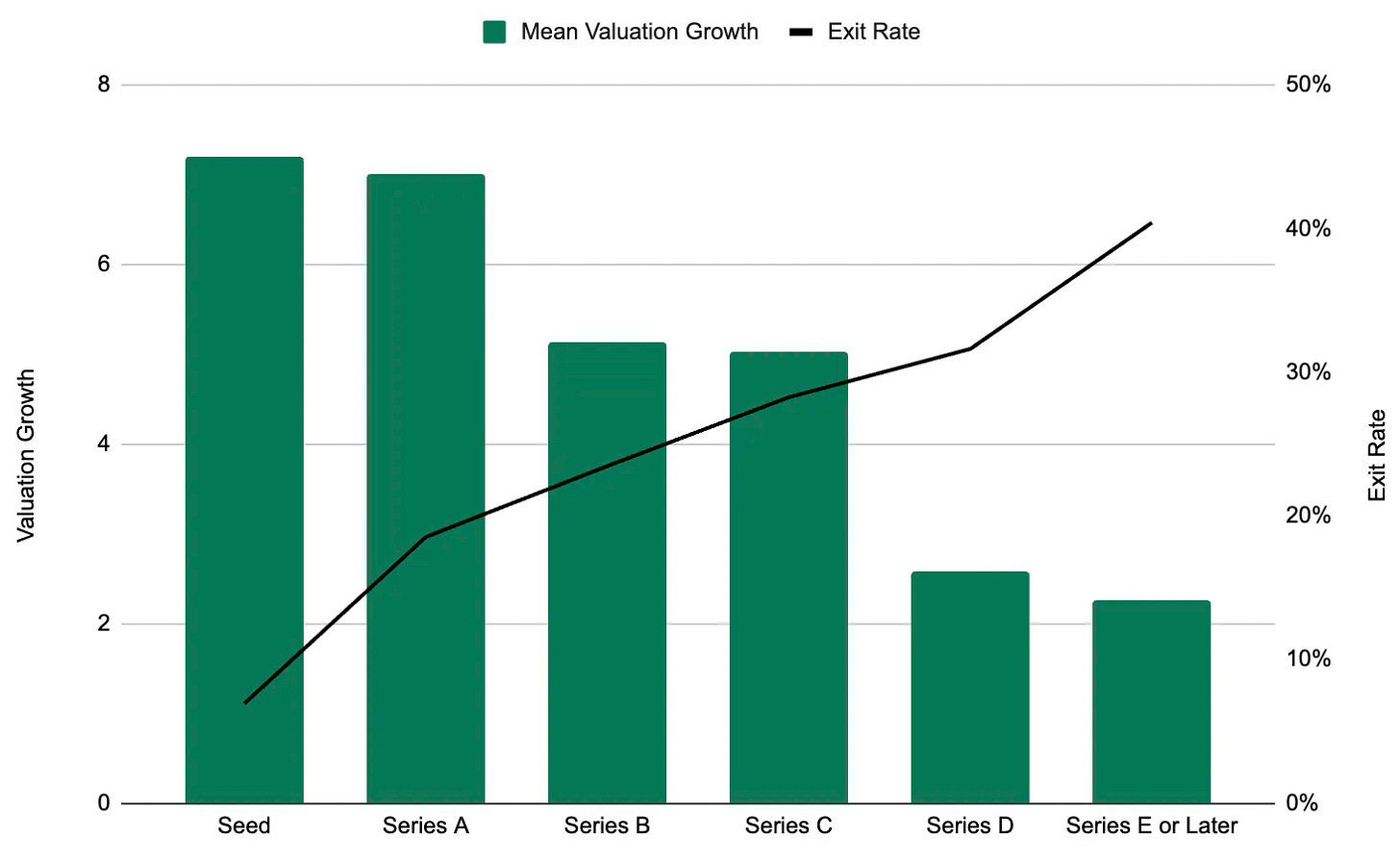thoughts (& data) on hiring founding engineers
I've talked to several founding teams hiring their first engineer recently, and looked into who these early hires are, how companies find them, and why they join.
70% of 1st hires are founding engineers.
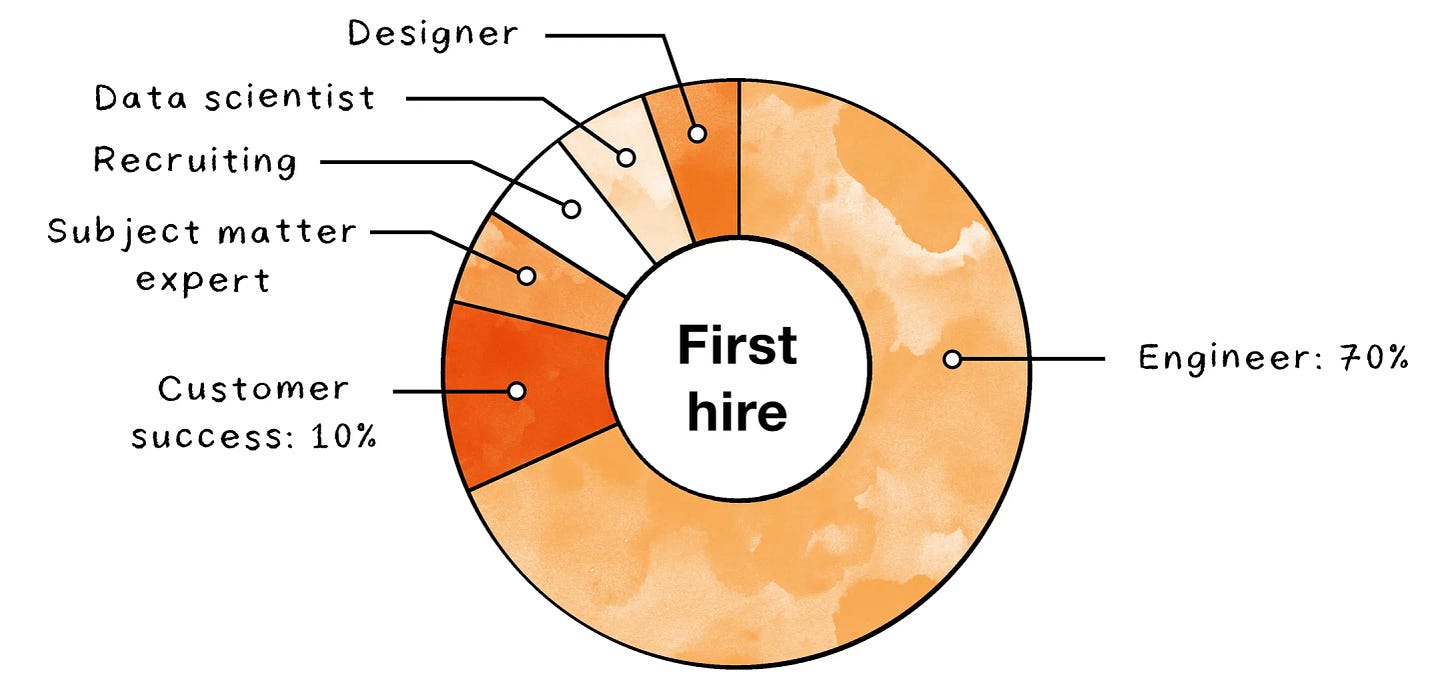
And according to someone on Reddit, it “is just the worse job. Don't do it.”
In the 0-1 days, startups need pioneers:
[Pioneers] are able to explore never before discovered concepts, the uncharted land. They show you wonder but they fail a lot. Half the time the thing doesn't work properly...they create 'crazy' ideas...they make future success possible. Most of the time we look at them and go "what?", "I don't understand?" and "is that magic?". In the past, we often burnt them at the stake. They built the first ever electric source (the Parthian Battery, 400AD) and the first ever digital computer. - Simon Wardley

But Prospect's data shows that Series A-C typically has the best risk/reward tradeoff.
And most people just aren’t cut out to join founding teams:
🍻 When Stewart Butterfield decided to pivot from Glitch to Slack ($27B), founding engineer Johnny Rodgers went to the office on the weekends to collect and refund beer bottles to extend runway.
🤠 15-year-old Sergey Shisholik joined Miro ($17.5B) after co-founder Andrey Khusid declined to buy his 3D model drawing engine. There were eight people and everyone was responsible for everything: back end, front end, product, design, marketing.
⏳ Greg Brockman, founding engineer of Stripe ($70B), expanded his team with the “Sunday test,” evaluating candidates through the filter “If this person were alone in the office on a Sunday, would that make you more likely to come in and want to work with them?”
So why struggle through the early years with founding teams for ~1-10% equity?
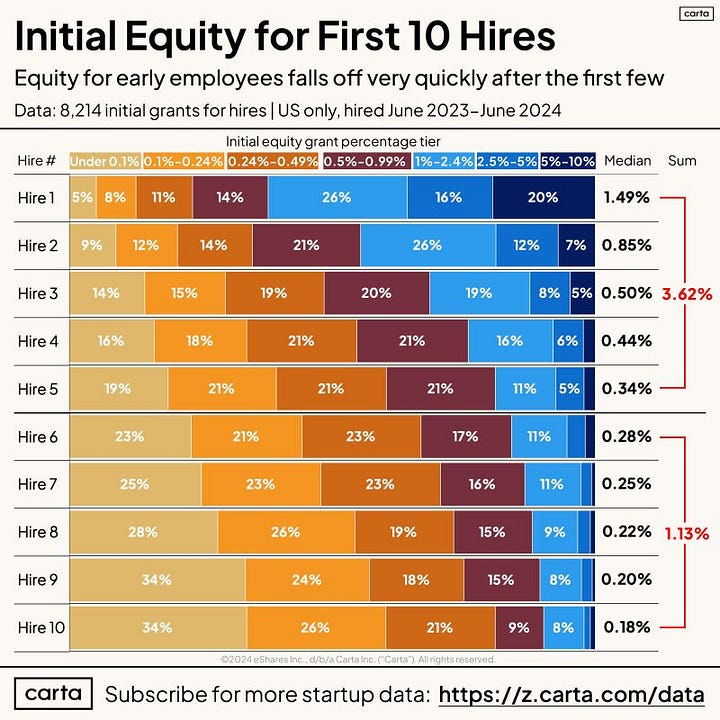
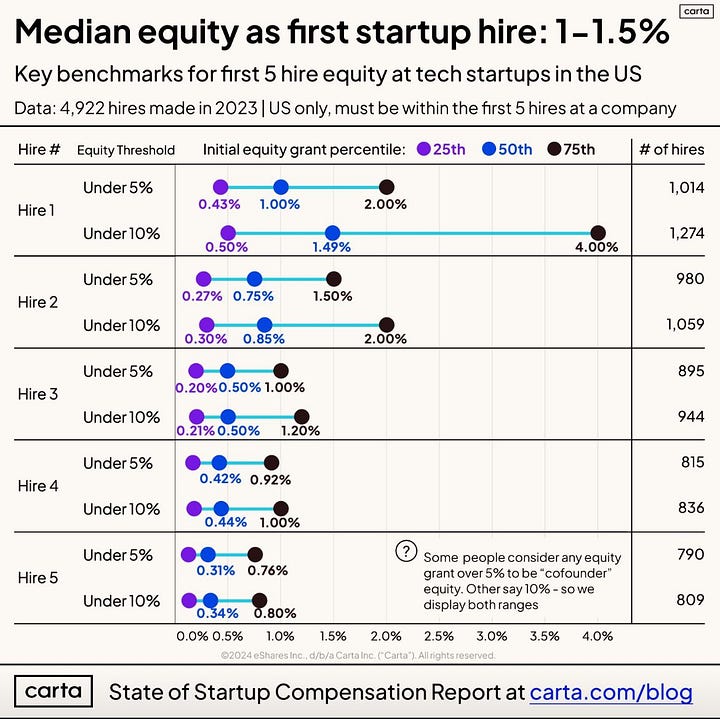
Pablo Meier, founding engineer of Ramp ($7.65B), took the leap because a friend had a positive previous experience working with the founders:
Joining a company as an early employee is usually a terrible idea as an engineer: you take a similar level of risk as a founder with a fraction of the upside. Leaving to join an early company needed to be pretty special.There's nothing quite like building something up with fantastic people 😊.
Melanie Perkins, CEO and Founder of Canva ($26B) closed Googler and PhD Dave Hearnden with the promise of adventure.

Beyond the upside, founding team members open doors for their future selves.
Greg Brockman famously left Stripe to co-found OpenAI.
Pioneer.
Referrals are the number 1 way that early teams hire, a huge blocker for anyone without a strong technical network.
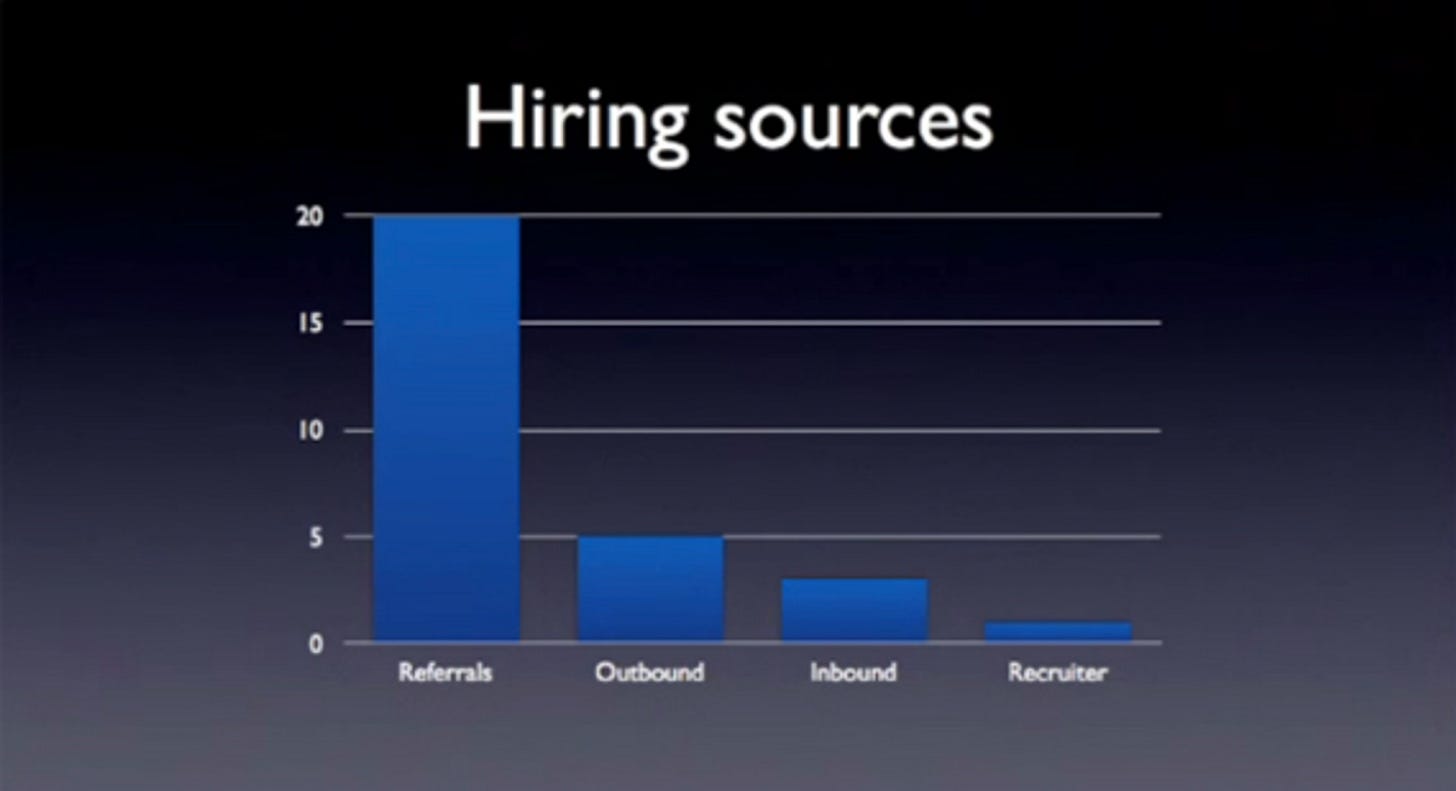
Luckily, building decentralized startups are increasingly in favor and there are many companies aiming to help founders bridge the gap with early engineering talent, including a few in our portfolio:
Swarm: expert-led AI teams
Remotebase: hire the top 1% of developers in 24 hours
Merit: find tech leaders giving back
I realize most engineers loathe LinkedIn but if you have a friend/former coworker with a pioneering mindset, we have pre-seed companies across climate, vertical SaaS and logistics hiring their 1st engineer at Hustle Fund.
And, if you're an early team member thinking about your next idea, we're writing $150k checks into ~7 companies each month.
PS I'd love more stories on/from underrepresented founding engineers. Drop me a note.




